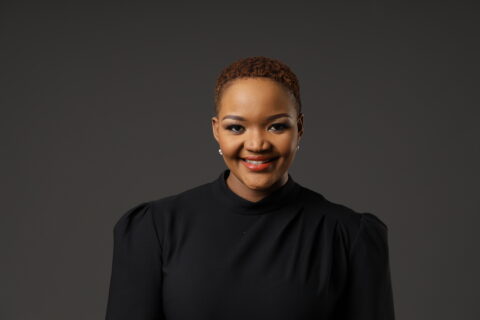CSI
Reimagining The Arts
Growing up in the dusty streets of a township, a chance encounter with a scout at the mall or the university graduation hall, and voila! a star is born! This seems to be a familiar narrative in the South African creative industry sphere – but what happens if the dusty streets are in such a remote area that they don’t even have names? What happens to ambition bred among vast expanses of arid land or rolling hills shared with livestock and orchards?
These were the thoughts that drove Artscape CEO Dr Marlene le Roux to establish the Artscape Rural Outreach Programme 12 years ago. Spurred on by a need to “take the theatre to the people”, Le Roux and her team created the programme to not only laud future thespians, but also to feed the industry with technical professionals in production management, stage management, sound and lighting skills, wardrobe and décor, and project administration and management.
“We identify either a community centre or school hall where we rig a professional stage where experts in the different technical fields engage with those within the community who are curious and/or interested in learning about their work. At times we build a completely new stage from scratch on an open field, thus demonstrating the expertise and skill needed to construct and have a technically-equipped stage for professional performances. We work with various municipalities and education departments to bring the arts to communities which do not have access, particularly to classics such as opera and ballet,” says Le Roux.
Over the years, the programme has travelled to communities including Saron, Ceres, Caledon and Clanwilliam. During October, they set up camp in Grabouw, working with the Theewaterskloof Municipality in partnership with the Western Cape Education Department and its School Enrichment Programme for Arts and Culture.
Providing opportunities in rural communities
One of the beneficiaries of the programme is Earlwyn van Wyk, who came up through the ranks from the Wellington outreach leg. Van Wyk, a big-band enthusiast who joined the initiative to learn to play more instruments and receive technical training, is now an ad hoc sound technician at the Artscape Theatre Centre.
“I was part of the community big band, and when the Artscape Rural Programme came to Wellington, I was thrilled because I wanted a way to improve my skills in playing big-band instruments and my skills in technical elements,” says Van Wyk. “It’s very difficult and too expensive getting training at universities for people like myself coming from a rural community. Artscape provided me with training and assisted with a stipend that helped in my travels when touring with the Wellington Big Band [that was] started by Artscape and [big-band musician and trumpeter] Ian Smith.”
Eurika van Wyk (no relation) is another grateful beneficiary who has found herself basking in the glow of being a stage actress, thanks to the initiative.
The young woman from Worcester won Best Actress in the Artscape High School Drama Festival in 2015. She has since moved to Cape Town to study drama at Northlink College, sponsored by Artscape.
“I’ve always dreamed of working in the arts field and being on stage. But hearing my name being called that day changed my life. I never thought my dream would ever be realised. Opportunities like this are not easy for people who live in rural communities, but with focus, motivation and help from such initiatives, I’m proof that it is possible,” she says.
Just rewards
Barely a year ago, Titus Khoza was just another struggling young man eking out a living in the remote town of Mgobodzi in Mpumalanga by cobbling together pairs of flip-flops to sell.
With no education beyond matric and the local internet café as his go-to source for information, the 27-year-old was determined not to let his rural upbringing and present adversities determine his future – or those of his peers. Khoza’s curious mind saw him trawling the internet for better opportunities that would help his design ambitions – and that’s when he stumbled upon the Nedbank ReImagination Project, the financial institution’s Corporate Social Investment programme aimed at assisting youth from South Africa’s rural and far-flung areas.
Armed with true grit, and unshakable belief in himself and an idea that would not only elevate himself but his community as well, Khoza took a leap of faith and entered the project. “When I found out about the Nedbank ReImagination Project, I knew it was the ticket I had been waiting for. I already had an idea in place which fitted in with the project, and the prize offered was going to shorten the time frame in which I could commence the initiative,” says Khoza.
He felt that flip-flops alone were not going to cut it, so he had to come up with a business idea that would have a far-reaching beneficial effect.
The idea? To buy a R250 000 machine he had identified to mass-produce sanitary pads to be distributed free in local schools and also sold at an affordable price in spaza shops.
Nedbank used the Design Indaba 2017 platform to launch the initiative, identifying, sponsoring and challenging 40 emerging creatives to see money differently and use their ingenuity to try to solve prevalent socio-economic challenges.
The young man from rural Mpumalanga not only beat 39 other intrepid young entrepreneurs at this sophisticated and long-running design expo to become the #ReImaginationProject winner but was also named the 2017 Top 40 Emerging Creative Rising Star by Design Indaba. The accolade came with a R100 000 prize money that will go towards funding the machine, which will in turn have a positive impact on the lives of the people around him.
“My team and I are now in the process of establishing a small factory in the community, which will create employment opportunities for the struggling members,” says Khoza.
Asked why he did not choose to pour the cash injection into his flip-flop business, Khoza is adamant that his mission is not just to raise himself up, but to take his community on the journey as well. His initiative, called “Fill in the gap”, will merge his design prowess with his community service by donating a portion of the money from every pair of flip-flops sold into the sanitary pads business.
“Sanitary pads are a basic but essential product that women need. If one wants to tackle the sanitary hygiene challenges that affect girls who end up missing out on their schooling, it is better to find a permanent solution instead of a once-off donation to them. This is why I’m passionate about this project,” he adds.






 Sign-up and receive the Business Media MAGS newsletter OR SA Mining newsletter straight to your inbox.
Sign-up and receive the Business Media MAGS newsletter OR SA Mining newsletter straight to your inbox.